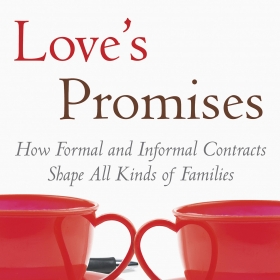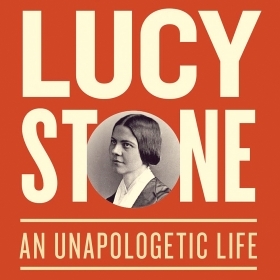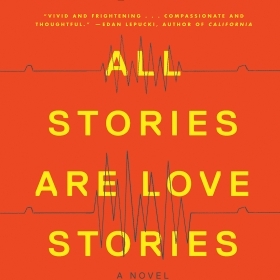In Love’s Promises, Martha Ertman ’85 blends memoir and law to argue that contracts (along with more informal deals) facilitate the formation and sustenance of modern families, along with—in various combinations—reproductive technology, adoption, cohabitation, and marriage.

Martha Ertman ’85
Love’s Promises: How Formal and Informal Contracts Shape All Kinds of Families
Beacon Press
281 pages, $20
In Love’s Promises, Martha Ertman ’85 blends memoir and law to argue that contracts (along with more informal deals) facilitate the formation and sustenance of modern families, along with—in various combinations—reproductive technology, adoption, cohabitation, and marriage. She skillfully weaves together an examination of family law, contract law, and the story of her own family to advocate for the use of contracts in familial relationships. By telling her own story about becoming a family of two moms and a dad—all gay—raising a child, Ertman shows that all kinds of families rely on contracts to shape their relationships.
This spring, we joined Ertman at Wellesley for a discussion of Love’s Promises, hosted by Rosanna Hertz, professor of sociology and women’s and gender studies, sharing our perspectives across four decades. We applaud the development of a framework to recognize family relationships and to address insufficiencies in existing law. With heart and humor, Ertman accomplishes this in a way that appeals across generations and to both the lay and the professional reader. As she illustrates—and as we see throughout own communities—today’s families are forming in and out of marriage and with the assistance of various legal and technological tools. Ertman offers a vision for the evolution of law and the use of contracts to protect and sustain these new kinds of families.
Love’s Promises asks us to consider what law and contracts can do to facilitate familial relationships. Her work leaves open questions of how, as a society, we want to permit adults to contract into or out of parenthood rights and responsibilities and how we can protect individuals when the contracting parties may have unequal bargaining power. However, arguing for recognition of the contractual basis of families sometimes leads Ertman to package up certain family arrangements in a way that can detract from the emotional appeal of her book. She terms today’s less conventional arrangements “Plan B” families—though creating family through the legal and technological means available today is simply creating family.
But this is a minor objection. Even as many members of both of our generations have come to applaud the many ways in which families take shape, grasping the legal implications of this evolution can be more complicated. This is what Ertman’s book helps us understand, not only with the head, but also with the heart. We urge you to read it—and give it as a gift for the holidays, no matter the configuration of your family.
Margot Coffin Lindsay ’46 founded Grandmothers for Obama, a volunteer network to promote support for President Barack Obama among older voters. Eleanor Blume ’06 is an attorney in Washington, D.C.


